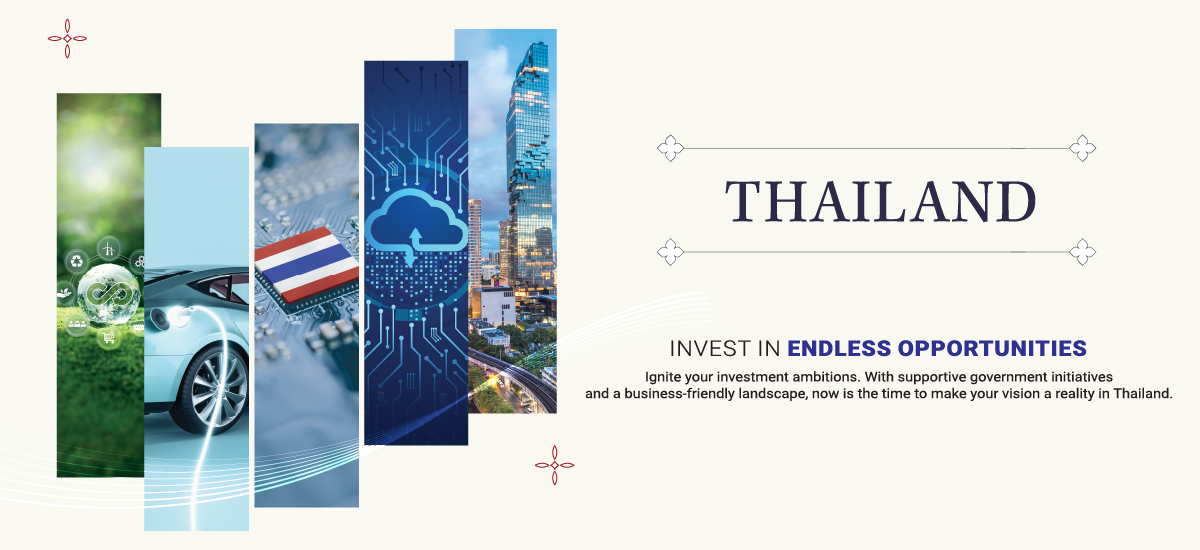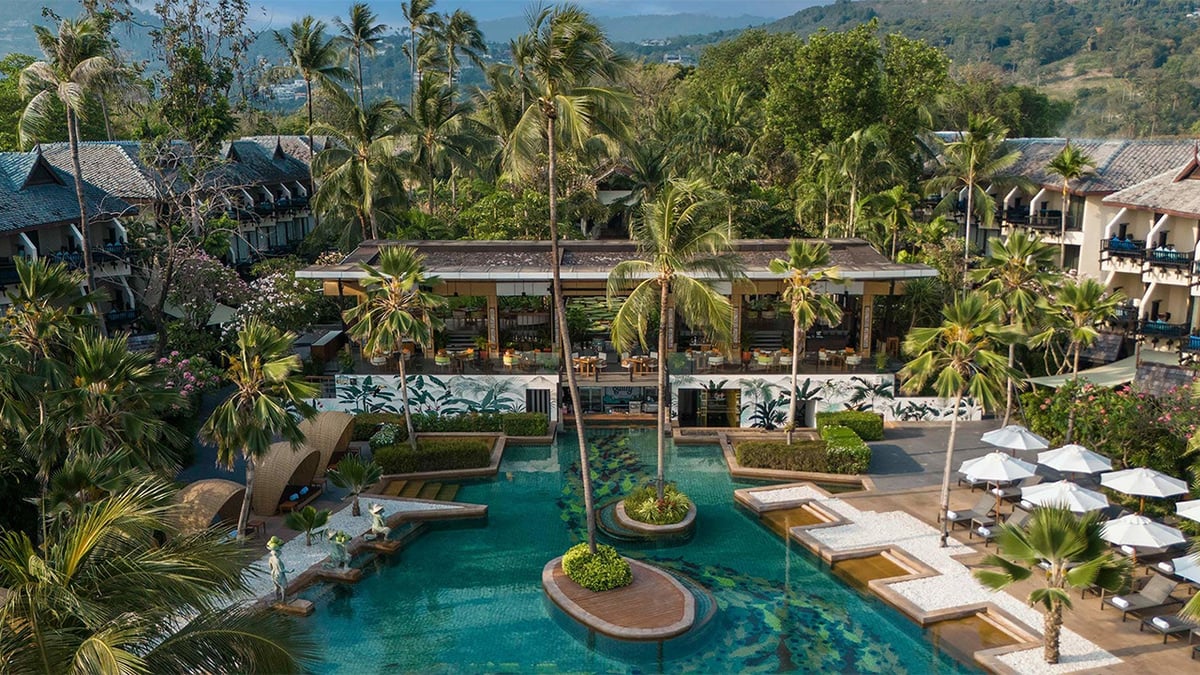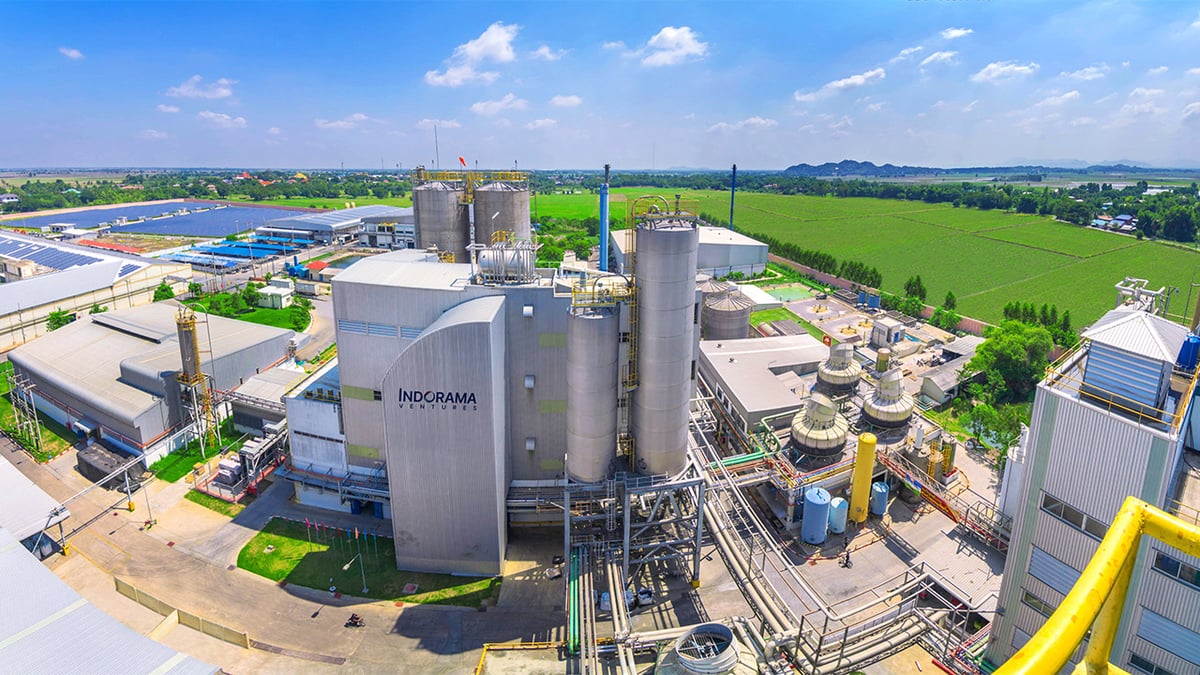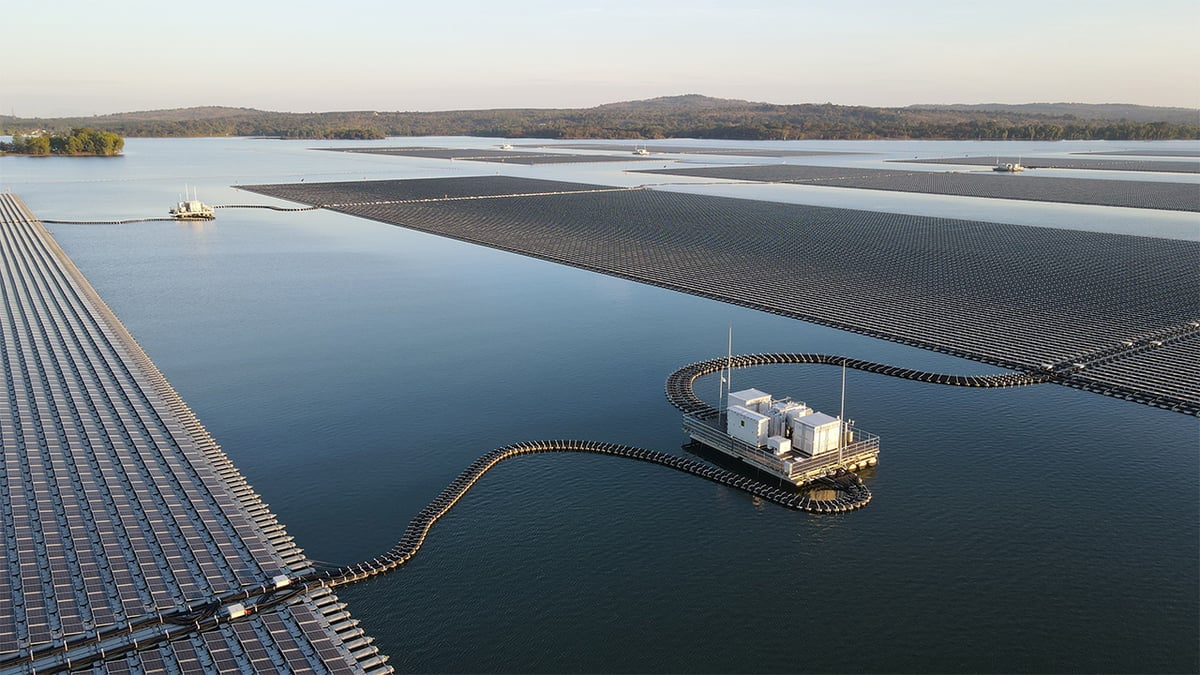
Billionaires and Startups Invest in Thailand’s “Endless Opportunities"
Entrepreneurs who have earned billions of dollars investing in Thailand believe the Southeast Asian economy is emerging as a rising hub of opportunity in an uncertain world.
In exclusive interviews, four foreign-born, Bangkok-based tycoons whose businesses have weathered numerous economic crises and political transitions predict the nation of 70 million will continue to deliver profits not only for their own companies, but also new investors.
William Heinecke, Harald Link, Aloke Lohia, and Yeap Swee Chuan run companies that between them have done business in Thailand for more than 250 years. Their comments lend weight to the government’s recently launched “Thailand: Invest in Endless Opportunities” marketing campaign.
Their views are supported by official figures showing that in the first half of 2025, investment applications lodged with the Thailand Board of Investment (BOI) jumped by 139% year-on-year to a record $32.5 billion. And they coincide with signs of a “reverse brain drain” of talented Thais returning home from overseas to launch businesses ranging from AI startups to fine dining restaurants.
“Thailand has an underlying stability that often is not understood,” says US-born billionaire Heinecke, whose Minor International PCL group has grown from a single beach resort in 1978 into an over 640-hotel global hospitality empire, which includes the luxury Anantara chain, and employs 80,000 staff in over 60 countries. “What sets the country apart is accessibility, infrastructure, rule of law—all of which give comfort not only to our company, but any investor coming here.”

Despite Minor’s explosive international growth, Heinecke says he’s still focused on further expansion in Thailand. While many investors fret about the uncertainty surrounding trade with the US, Heinecke notes that Thailand sits at the heart of the 10-nation Association of Southeast Asian Nations (ASEAN), one of the world’s biggest common markets with 700 million consumers.
“There are many opportunities in Thailand and even more as you look around the region,” he says. “Thailand is perfectly positioned to take full advantage, and the Thai government is very supportive of foreign investment.”
Quite how supportive became clear to Indian entrepreneur Aloke Lohia in 1988 when he arrived in Thailand to setup a chemical factory.
First port of call was the BOI—the agency that offers incentives to foreign direct investors.
Today, Lohia is a billionaire and his company, Indorama Ventures PCL, is a global top 30 chemical company, operating in 32 countries, and is one of the largest manufacturers and recyclers of PET, the plastic used for beverage bottles, apparel and pharmaceuticals.

He ticks off Thailand’s advantages: great infrastructure, capital markets, workforce and lifestyle. “Here we have all the comforts of the East and all the advancement of the West,” Lohia says.
Swiss-born Harald Link heads B.Grimm, which was founded in 1878 as a pharmacy and over the subsequent 147 years has grown to become one of Thailand’s largest conglomerates and power producers, operating in 15 countries.
During that time, he says, B.Grimm has witnessed Thailand navigate world wars, Asian and global financial crises, recessions, pandemics, political transitions and natural disasters.
“In each instance, the country has not only maintained stability, but has also continued to attract investment, drive economic growth and expand its industrial base,” he says. “These experiences give us confidence that Thailand, with its resilience and adaptability, will once again rise above today’s uncertainties and continue to prosper.”
Link is investing heavily in two of Thailand’s industries of the future—clean energy and data centers. “Thailand’s ambitious national targets for renewable energy adoption open vast opportunities,” he says.

Malaysian-born autoparts tycoon Yeap Swee Chuan notes that even when governments change in Thailand, investment policies remain consistent.
After founding AAPICO Hitech PCL in 1996, Yeap has become a key participant in what has become the world’s 10th largest vehicle manufacturing hub, attracting carmakers from Japan, China, the US, and Europe.
To grow the industry, the Thai government incentivized manufacturers to build and export pickup trucks, fuel-efficient eco-cars, and now EVs, spawning a sophisticated world class supply chain. “They have all been fantastic policies,” says Yeap.

“These entrepreneurs are great examples of the opportunities Thailand offers: strategic location, quality workforce, great connectivity and consistent pro-investment policies,” says BOI Secretary General Narit Therdsteerasukdi. “The support we provide ranges from tax benefits to the 10-year long-term resident (LTR) visa that facilitates investors’ stay in Thailand.”
